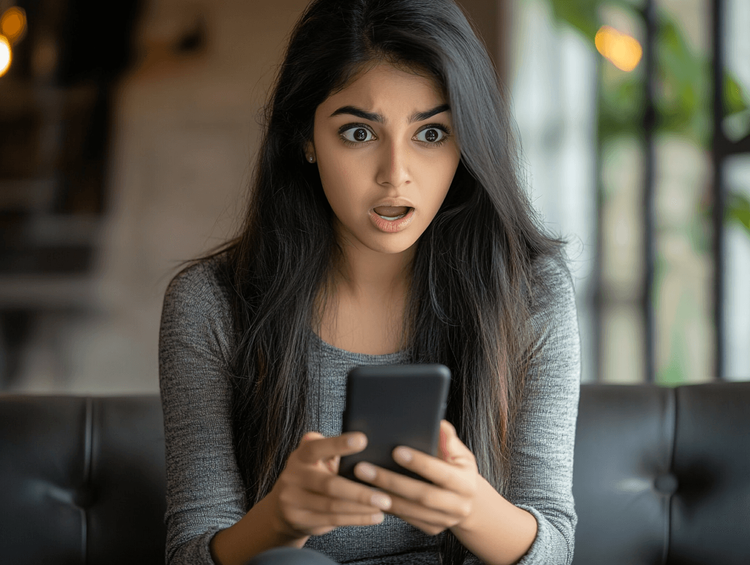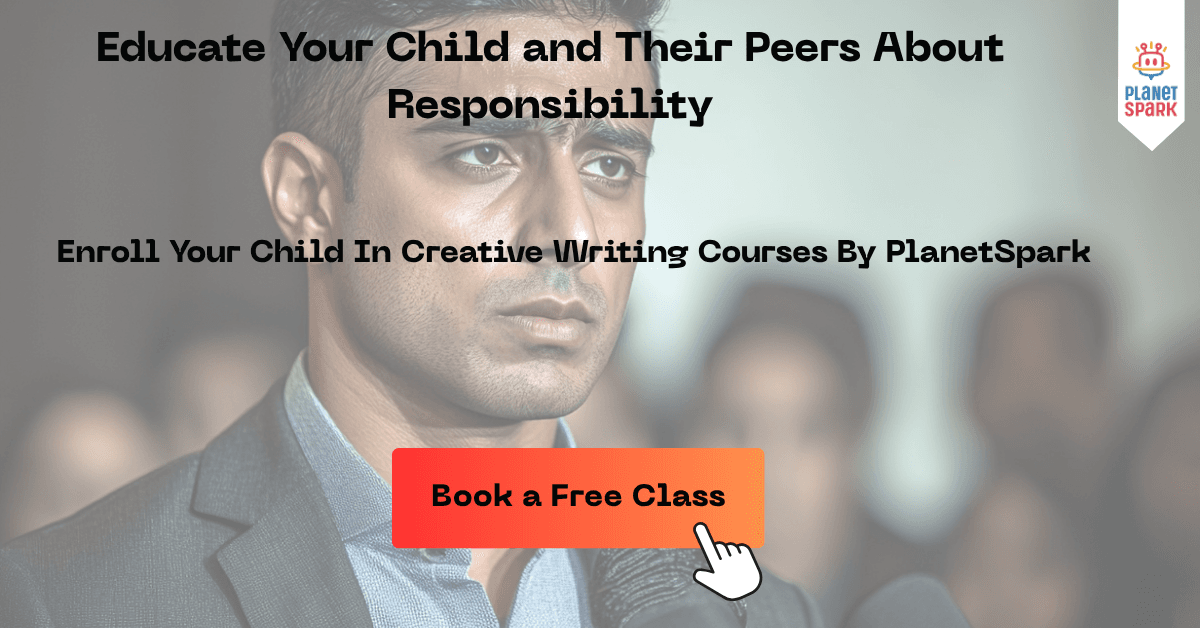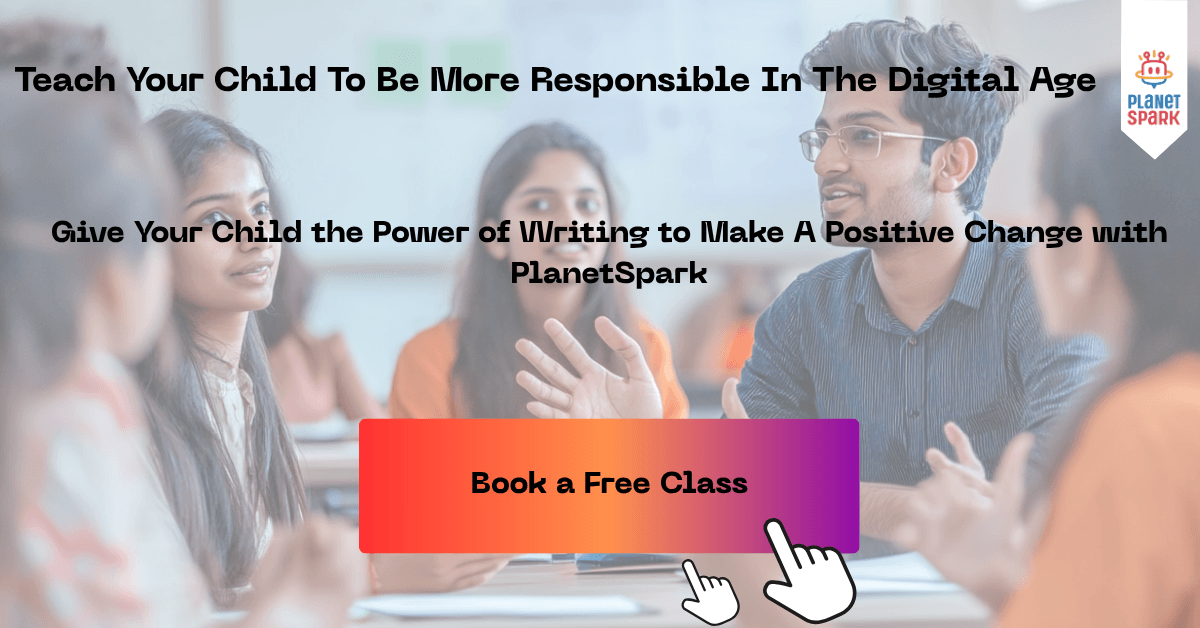Celebrity Accountability and Social Responsibility

Table of Contents
- The Double-Edged Sword of Celebrity Fame
- The Power and Pitfalls of Celebrity Influence
- When Celebrities Break the Law
- Additional Cases of Celebrity Accountability
- Legal and Ethical Considerations
- The Role of Brands and Media
- The Core Argument: Accountability Must Be Universal
- Should Celebrities Be Punished More Severely?
- The Role of Media and Public Perception
- Economic and Social Biases in Justice
- International Perspective: Celebrity Justice Around the Worl
- Can Accountability Lead to Positive Change?
- What PlanetSpark Believes: Teach Accountability Early
- How PlanetSpark Builds Responsible Communicators
- Final Thoughts: Why This Conversation Matters
The Double-Edged Sword of Celebrity Fame
Celebrities have an immense influence over society. Whether it's movie stars, musicians, athletes, or social media influencers, these public figures often become role models for millions. Children idolize them, adults emulate their lifestyle, and media houses thrive on their every move.
But when these icons step out of line or break the law, an ethical and legal debate surfaces: Should celebrities be treated differently under the law? Or should their fame demand even more accountability?
At PlanetSpark, where we empower children to become confident communicators and creative thinkers, we believe this is a critical topic for discussion. Let's explore it deeply.
The Power and Pitfalls of Celebrity Influence
Why Do People Look Up to Celebrities?
Celebrities hold a unique place in society. They are seen as symbols of success, style, and aspiration. From their fashion choices to their fitness routines and even personal philosophies, everything about a celebrity is under public scrutiny—and admiration.
Children, especially, are impressionable. They:
- Watch celebrity interviews and reality shows
- Try to mimic their speech, mannerisms, and behavior
- Follow them on social media to consume their daily routines
When a celebrity promotes kindness, education, or sustainability, the ripple effect can be powerful. However, when they indulge in illegal activities, the results can be dangerous, especially when young minds see them escape consequences.

The Psychology Behind Celebrity Worship
Psychologists have studied the phenomenon known as "parasocial relationships"—one-sided emotional attachments people form with celebrities. These relationships can lead individuals to:
- Justify or excuse celebrity misbehavior
- Feel personally affected by a celebrity's success or downfall
- Prioritize celebrity approval over real-world ethical standards
This emotional investment complicates how society reacts when celebrities commit crimes.
When Celebrities Break the Law
Famous Cases that Made Headlines
Here are some notable instances of celebrities who found themselves on the wrong side of the law:
1. Justin Bieber
- Charged with reckless driving, resisting arrest, and driving under the influence
- Pleaded guilty and paid a bond of $2,500
- Served anger management and community service instead of jail time
2. Salman Khan
- Accused in a 2002 hit-and-run case resulting in one death and multiple injuries
- After years of legal proceedings, he was sentenced but granted bail soon after
3. Sanjay Dutt
- Convicted under the Arms Act in connection with the 1993 Bombay blasts
- Spent time in jail and completed his sentence
4. Will Smith
- Slapped comedian Chris Rock at the Oscars in 2022
- Despite the act being broadcast live, no legal action was taken as Chris Rock chose not to press charges
5. Lindsay Lohan
- Repeated arrests related to drug use and theft
- Faced several short jail terms, rehabilitation, and probation
6. R. Kelly
- Faced multiple allegations and was ultimately convicted of sexual abuse
- Received a 30-year prison sentence in 2022, demonstrating a case where the law caught up despite celebrity status
Additional Cases of Celebrity Accountability
Several instances highlight the importance of holding celebrities accountable:
1. Kanye West and Anti-Semitic Remarks
In 2022, Kanye West (Ye) faced backlash for making anti-Semitic comments. Brands like Adidas, Balenciaga, and others ended partnerships with him, emphasizing that hate speech has consequences, even for high-profile individuals.
2. J.K. Rowling and Transphobic Comments
The “Harry Potter” author faced intense criticism for tweets deemed transphobic. While she defended her right to free speech, many fans and public figures distanced themselves. This raised questions about balancing personal beliefs with public responsibility.
3. Influencer Misconduct
Social media influencers, a new wave of celebrities, have also been held accountable. Logan Paul faced immense backlash for a YouTube video in Japan’s “Suicide Forest.” The incident led to demonetization and temporary removal from YouTube’s preferred ad program.
These examples demonstrate a pattern: some celebrities face consequences while others seemingly evade them, depending on public sentiment, legal loopholes, and media influence.
Legal and Ethical Considerations
Celebrity accountability isn’t just a moral issue—it has legal and financial implications. Defamation, breach of contract, or misleading advertising can lead to lawsuits and financial penalties.
For instance, Kim Kardashian was fined by the SEC for promoting cryptocurrency without proper disclosure. This highlights that celebrities are not above the law, and their actions can have legal repercussions.
The Role of Brands and Media
Brands have a crucial role in enforcing celebrity accountability. When a celebrity’s actions conflict with a brand’s values, terminating the partnership sends a strong message.
The media also plays a pivotal role. Sensationalism can either exaggerate or underplay a celebrity’s misconduct. Responsible journalism must balance factual reporting with the impact of coverage.
The Core Argument: Accountability Must Be Universal
Why Should Celebrities Be Accountable for Their Actions?
Accountability isn’t about being harsh. It's about being fair. When celebrities break the law and face no or minimal consequences, it:
- Sends the wrong message to society
- Encourages a sense of immunity for the rich and famous
- Weakens the public's faith in justice
No one should be above the law, regardless of their status. Celebrity crimes are often public and should be addressed with transparency. When stars get away with illegal behavior, it creates double standards.
The Impact on Children and Youth
Children see celebrities as heroes. When they observe them breaking laws and escaping penalties, it:
- Normalizes bad behavior
- Creates distorted perceptions of justice
- Reduces respect for law enforcement and civic duty
Educators and parents often find themselves in difficult positions, trying to explain why someone their child admires didn't face consequences. It becomes crucial to use such moments as learning opportunities to reinforce ethical behavior and critical thinking.

Should Celebrities Be Punished More Severely?
The debate here isn’t about making examples of celebrities through harsher punishments. Rather, it’s about making sure they face the same level of scrutiny and consequence as an ordinary person would.
Equal, Not Extra
If a regular citizen would face jail for a crime, then so should a celebrity. Conversely, if the law allows fines or community service, those same options should apply. However, celebrity status should not shield anyone from justice.
Some argue that celebrities should be punished more severely because of their influence, as a way to deter others and set a public example. Others argue this violates the principle of equality before the law.
The most ethical route? Equal punishment. Nothing more, nothing less.
The Role of Media and Public Perception
Media often glorifies celebrity wrongdoings, turning legal cases into sensational stories. This does two things:
- Distracts from the legal outcome
- Influences public opinion and judicial proceedings
The "trial by media" often either vilifies or deifies the celebrity involved, which can bias public perception and possibly even court decisions. The disproportionate coverage can also overshadow more pressing societal issues, skewing priorities.
Social media adds another layer of complexity. Hashtags, viral clips, and online outrage can pressure legal bodies, influence jurors, and even affect victims and witnesses.
Economic and Social Biases in Justice
Access to Legal Resources
Wealth affords celebrities access to:
- The best defense attorneys
- Public relations professionals to manage the image
- Bail money and financial leverage to delay or mitigate consequences
Influence on Policy
Some celebrities become so powerful that they influence legislation. While this can be positive, such as when stars advocate for social justice, it can also be dangerous if used to lobby for personal protection or leniency.
International Perspective: Celebrity Justice Around the World
United States
High-profile celebrities like O.J. Simpson, Britney Spears, and R. Kelly have shown how the legal system can both favor and challenge celebrity status.
India
Bollywood stars like Salman Khan and Sanjay Dutt have faced decades-long trials, with outcomes heavily debated by the public.
South Korea
Known for strict societal norms, South Korean celebrities often face severe public backlash and professional consequences even before trials begin. Many step down from the public eye during investigations.
United Kingdom
While British law is often seen as balanced, tabloids can heavily influence public sentiment, as seen in cases involving Prince Harry, Meghan Markle, and others.
These cultural differences show that celebrity accountability is both a legal and sociocultural issue.
Can Accountability Lead to Positive Change?
Absolutely. Accountability can be a tool for growth and redemption. Celebrities who acknowledge their mistakes and take corrective action can set powerful examples. Robert Downey Jr.’s journey from addiction to becoming a respected actor is a case in point.
Accountability can also lead to broader societal changes. Celebrities using their platforms to speak against injustice—such as Marcus Rashford’s campaign for child food poverty in the UK—show how influence can drive policy change.
Inspire your child to use their voice for good—join PlanetSpark’s free Creative Writing trial session today.
What PlanetSpark Believes: Teach Accountability Early
At PlanetSpark, we prepare students for the real world by honing not just their communication skills but also their sense of responsibility, expression, and critical thinking. We believe:
The earlier children learn that actions have consequences, the more mindful and ethical they become.
This belief is reflected across all our offerings:
How PlanetSpark Builds Responsible Communicators
1:1 Personal Trainers for Every Child
Every student is paired with a certified communication expert who:
- Adapts to their pace and learning style
- Provides instant, personalized feedback
- Focuses on skills like fluency, storytelling, and creative writing
Personalised Curriculum and Learning Roadmap
Each child gets a tailored roadmap after a detailed assessment. This ensures:
- Focused improvement in grammar, fluency, and confidence
- Dynamic progress tracking
- Ongoing updates based on milestones
SparkX: AI-Powered Video Analysis
Children upload video tasks, which are evaluated on:
- Voice clarity, body language, grammar, and delivery
- Confidence and structure
- A detailed report highlights strengths and gaps
AI-Led Practice Sessions
Students engage in:
- Virtual speaking practice
- Real-time AI feedback
- Structured exercises for grammar and fluency
Spark Diary: A Daily Writing Habit
Students journal or respond to prompts, which helps:
- Enhance writing consistency
- Improve creativity and expression
Gamified Learning
Our platform includes:
- Spelling and vocabulary games
- Grammar challenges and quizzes
- Daily revision tools
Structured PTMs
Parents receive:
- Transparent performance updates
- Tailored recommendations
- Action plans for sustained growth
Comprehensive Progress Reports
Each child is evaluated across:
- Grammar, fluency, and body language
- Creative thinking and delivery skills
- Trainer insights and actionable next steps
Learning Clubs & Communities
We offer:
- Debate, storytelling, and podcasting clubs
- Poetry circles and writing guilds
- Fun, peer-supported learning
Sparkline: Safe Content Sharing for Kids
Children can:
- Share speeches, stories, and reflections
- Engage with peer content safely
- Build digital expression skills
Contests & Showcases
We organize:
- Speech, storytelling, and creative writing contests
- Podcast exhibitions and open mics
- Certificates and public recognition for winners
SparkBee and SparkShop
- SparkBee: Engaging grammar, spelling, and vocabulary quizzes for daily practice
- SparkShop: Budget-friendly eBooks covering grammar, reading, and writing
Final Thoughts: Why This Conversation Matters
Celebrity accountability isn’t just a legal or ethical issue—it’s a societal one. At a time when children are growing up with unprecedented media exposure, it’s vital to ensure the role models they follow set the right example.
By holding public figures accountable, we not only protect the integrity of justice but also nurture a generation that values fairness, honesty, and responsibility.
Frequently Asked Questions (FAQs)
Why should celebrities be held accountable when they break the law?
Celebrities have a huge influence on society, especially on children and teens. Holding them accountable reinforces that no one is above the law and helps set a strong example for ethical behavior.How do children perceive celebrity actions, and why does it matter?
Children often idolize celebrities. If they see their favorite stars committing crimes without facing consequences, it may send the wrong message that fame excuses wrongdoing. This can hinder moral development and respect for rules.How does celebrity punishment impact public behavior and legal trust?
When celebrities are fairly punished, it builds public trust in the justice system. It also reinforces the idea that actions have consequences, encouraging better behavior among fans and the public.Do celebrities use their influence to escape punishment?
In many cases, yes. Wealth and fame can help delay or soften legal outcomes through high-profile lawyers, media influence, and even political connections. This can create perceptions of unfairness in the legal system.How can students be taught to think critically about these issues?
Critical thinking can be developed through guided discussions, debates, and structured writing tasks that encourage students to form independent viewpoints based on facts and ethics.What role does creative writing play in shaping independent thinking?
Creative writing allows children to analyze situations, understand different perspectives, and express their opinions with clarity. It fosters empathy, logic, and articulation.How does PlanetSpark incorporate social awareness into its curriculum?
PlanetSpark integrates current affairs, ethical discussions, and character-building into writing and public speaking activities, helping students engage with real-world issues meaningfully.

Hi There, want to try these
tips for your child with
LIVE with our expert coach?
Let's check your child's
English fluency
